The best CPU for gaming in 2021
With stock now more readily available the best CPU for gaming is now something that us normal folk can actually go out and buy. If you're after a new processor, then we're once more at a point where you can buy the best, and not just what's in stock. The graphics card may get all the gaming frame rate glory, but your CPU is the brains of the operation and the only reason you're PC can do anything outside of gaming. It's also the thing that keeps your GPU fed with data, too.
We've tested every one of the chips on this list, running them through our rigourous CPU benchmarking suite on the PCG test rig. That includes intensive 3D and video rendering workloads, as well as testing the chips' all-important gaming performance.
Intel releasing the Rocket Lake chips means that we've got CPUs of varying quality like the Core i5 11600K as the best value for its performance while being heavily disappointed with the flagship Core i9 11900K's overall performance. Though, our hands-down favorite CPU at the moment is the Ryzen 9 5900X, along with a lot of AMD's current Zen 3 chips.
Usually, when you're building a new from scratch, one of the first things you need to figure is whether you're going to make an Intel or AMD system. Whichever you choose, here are a couple of things you should know. The new Ryzen 5000 chips still use the AM4 socket and are compatible with X570, B550, and A520 motherboards (oh, and B450 and X470 motherboards).
Intel's Comet Lake chips use the LGA 1200 socket, and Rocket Lake has introduced new 500-series boards. Unless you're desperate for the awkward PCIe 4.0 solution the new Intel chips offer, go with either a Z490 or cheaper B460 motherboard at this point for Intel. Thankfully, our picks for the best gaming motherboard are compatible with the CPUs on this list.
The best CPU for gaming
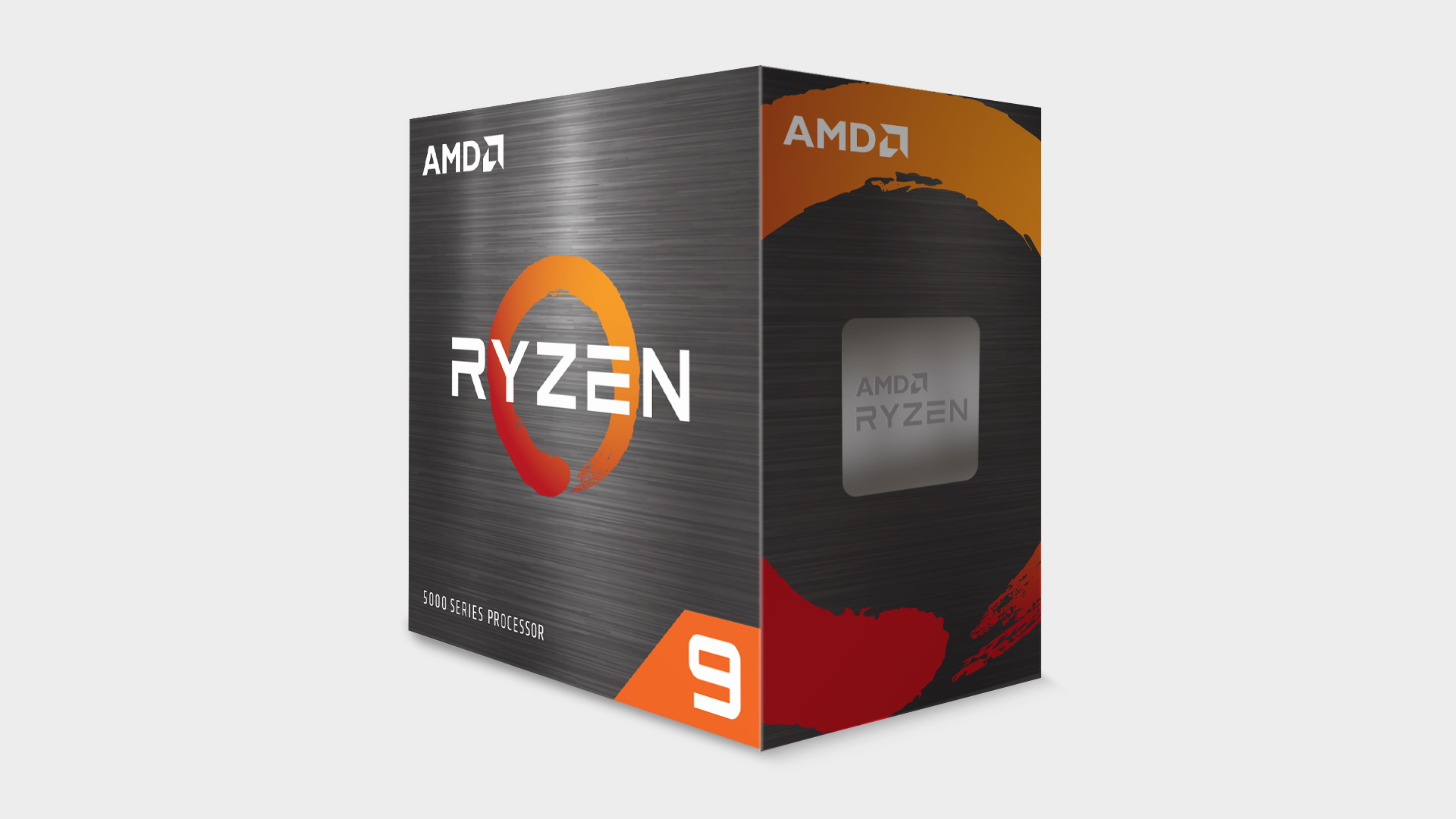
AMD's Zen architecture has improved with each generation, but the fact that AMD managed to knock out a 19 percent IPC improvement with Zen 3 is nothing short of staggering. The key takeaway for us as gamers is that this improvement means that AMD can now stand toe to toe with Intel when it comes to gaming. Honestly, there's so little between these two now that anyone claiming otherwise is delusional.
Whatever resolution you are gaming at, this processor can handle it and keep your graphics card of choice fed with many juicy frames. The fact that this is a 12-core, 24-thread monster means that it can cope with anything else you throw at it as well. So if you have dreams of 3D rendering, video editing, or any other serious tasks, you'll know that you have the raw grunt to handle it. The fact that it won't hold you back when gaming makes it even sweeter.
The only real downside is the pricing and the dropping of the Wraith cooler—don't forget to factor in when you buy. You do get what you pay for, though, and this is a phenomenal chip for gaming and anything else you might want to do.
If you're in the market for real power, you could step up to the Ryzen 9 5950X, which gives you 16 cores and 32 threads. However, it costs $250 more, and for gaming purposes and even most content creation chores, the 5900X is more than sufficient.
Read the full AMD Ryzen 9 5900X review.
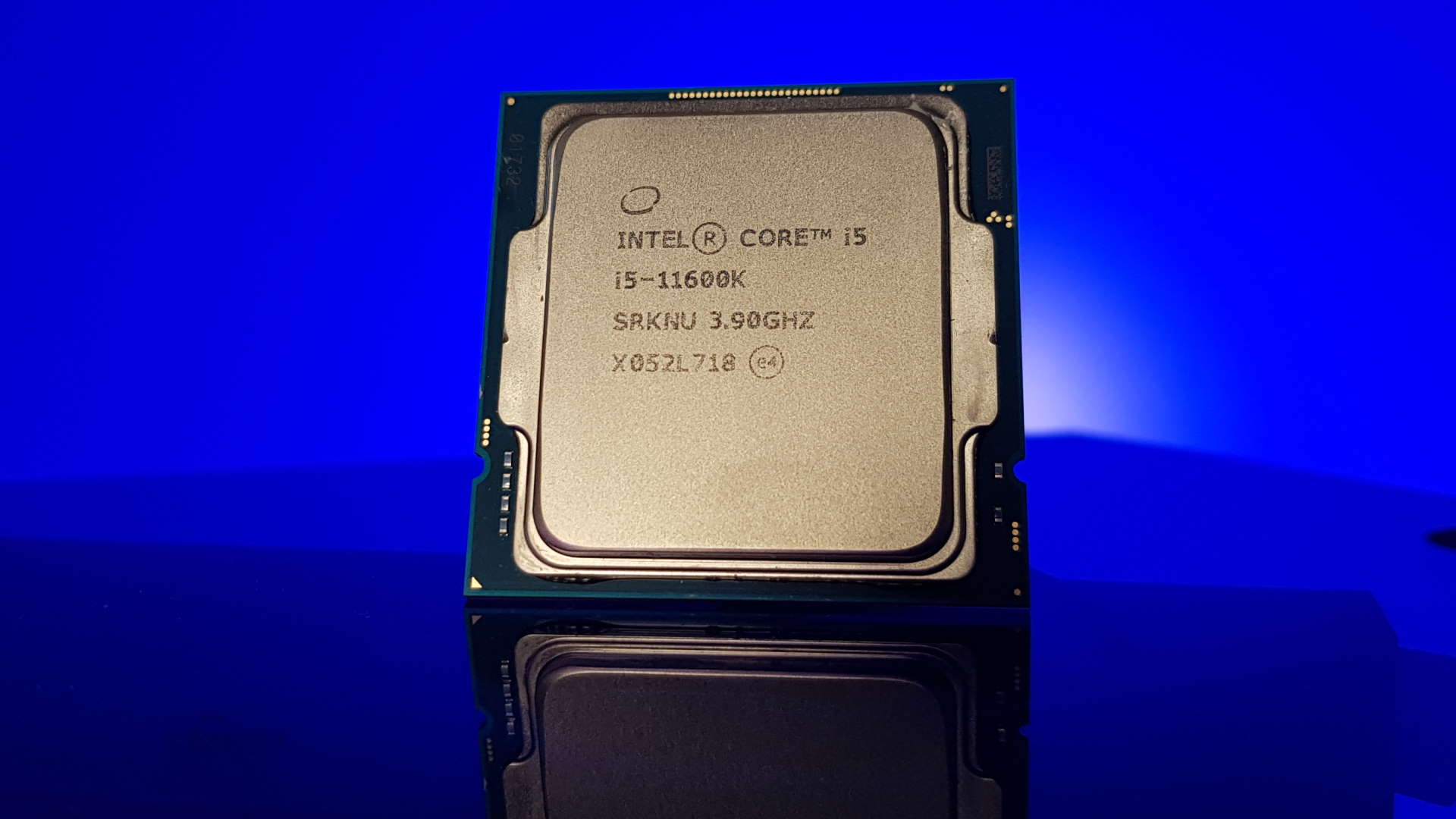
The Core i5 11600K is my favorite chip of the new Rocket Lake generation, which marks a nostalgic return to the old days of Intel CPU launches. The top processor was always a decent halo product, but the i5 was where the price/performance metrics really sold a new generation. Okay, with the 11900K being a frustrating chip, maybe it's not a total return to the old days, but the 11600K is still an outstanding six-core, 12-thread gaming processor.
It's also incredibly affordable too, with a price tag well underneath the Ryzen 5 5600X and performance figures that have it trading blows with AMD's otherwise excellent Zen 3 chip. The Cypress Cove 14nm backport may have made it rather power-hungry, but that doesn't stop it from being a great gaming CPU and one that delivers a lot of processor silicon for not a lot of cash.
And PCIe 4.0 support on Intel 500-series motherboards. Though that is of dubious benefit at the moment as our testing has not so far gone well with supported PCIe 4.0 SSDs. That will hopefully change, but even so, this is still one of the best cheap gaming CPUs around.
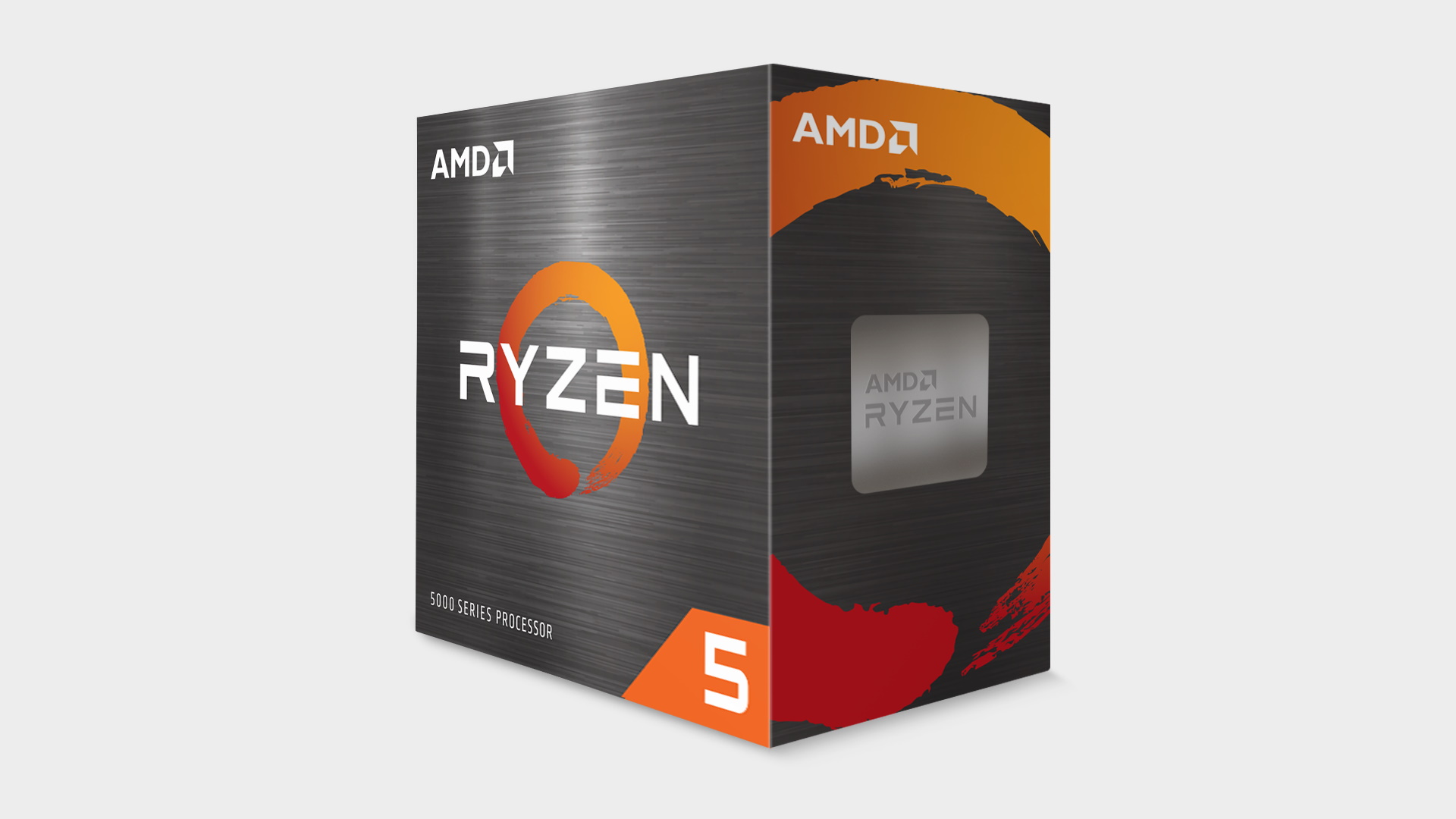
When it comes to gaming, everything that's great about the 5900X rings true for this more affordable Zen 3 chip as well. There's nothing between any of the Ryzen 5000 chips in games, which means you'll hit the same frame rates with this chip as you will our number one pick. Which is incredible when you think about it—top-tier performance from the most affordable Zen 3 CPU? We'll say yes to that every single day.
This does have half the core count of that top chip, rolling in as it does with 6 cores and 12 threads. This is only an issue with those more serious workloads, though, which is more than sufficient for more reasonable stuff. You could argue that gaming could go beyond the 12-threads we have here, but there's no evidence that is the case so far, and that's even though the next-gen consoles are rocking 8-cores and 16-threads.
The Ryzen 5 5600X also bucks the Ryzen 5000 family's trend by shipping with a Wraith Stealth cooler, so you don't have to drop extra money on a third-party chiller. You don't need to, but if you do, you'll hit higher clocks for longer and also open up the wonderful world of overclocking, which could make it worthwhile. This is a decent little overclocker, and while it won't affect gaming much, it'll help in other areas nicely.
Read the full AMD Ryzen 5 5600X review.
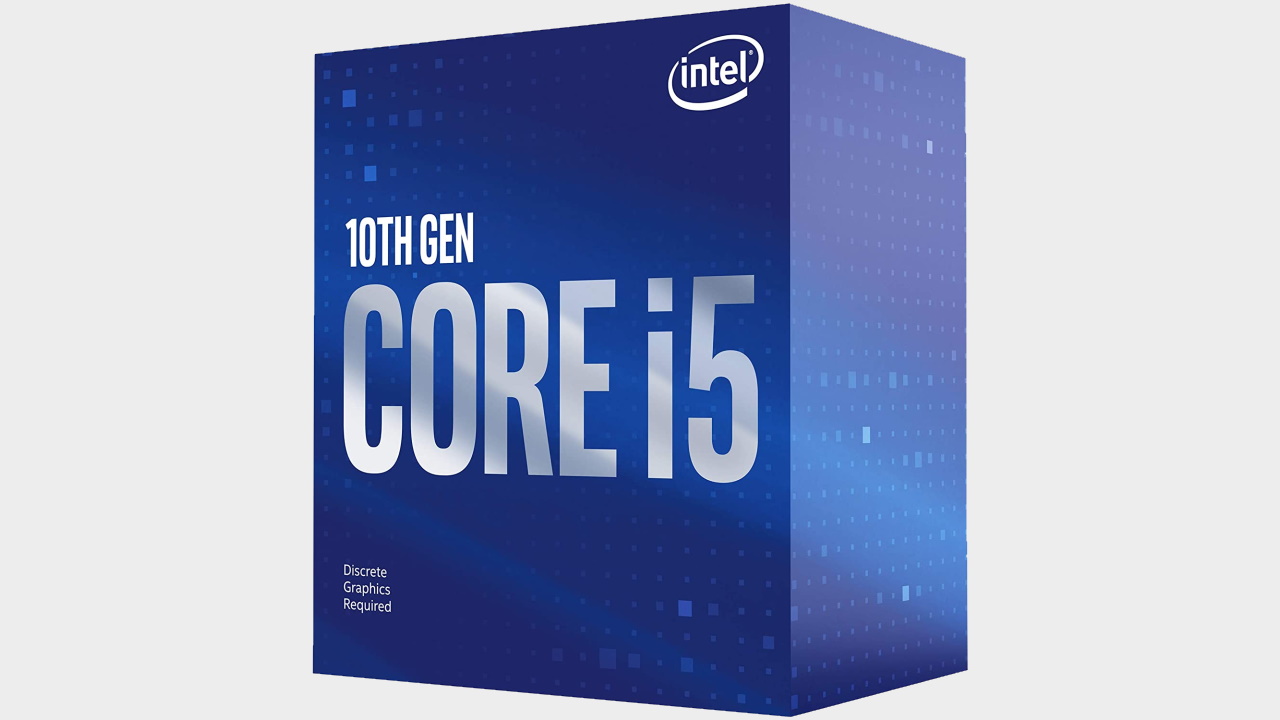
The Core i5 10400F is a surprisingly exciting option. It's slightly faster than the previous-gen Core i5 9400, but that F-suffix means it ditches the Intel integrated graphics completely. That's not a problem for gamers unless you want to use QuickSync, although Nvidia's NVENC is arguably better anyway. Overall, it's an excellent budget-friendly choice that doesn't cost much more than a Core i3 part.
There are other compromises, like the locked multiplier—no overclocking here. But you can save money and grab an H470 motherboard. At least you get a cooler in the box, something we'd like to see as an option with every CPU. Most boards will happily run the 10400F at 3.9GHz, so don't worry about the low base clock.
While the i5 10400F may not be as fast as other CPUs in multithreaded tests, in our gaming suite, it's tied with AMD's last-gen 3900X. Future games may start to push beyond its 6-core capabilities, but probably not before you're ready for an upgrade. Right now, the i5 10400F is plenty fast and extremely affordable.
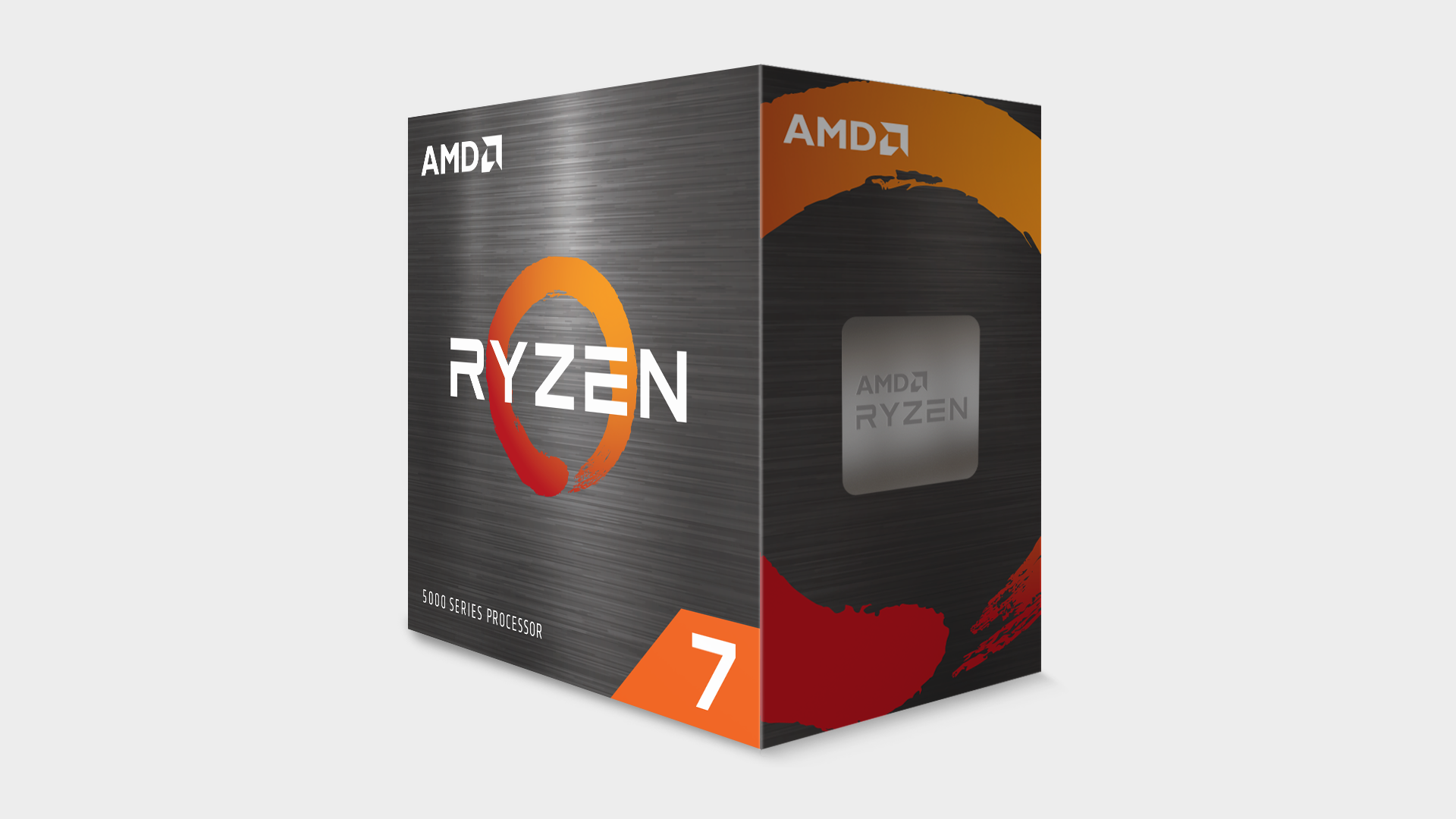
If the Intel Core i7 doesn't exist in a world, this would be an incredible chip and would have made it into our top three recommendations, no sweat. It's great for gaming, producing the same figures that can be seen for the 5900X and 5600X. Still, it also appears to hit the sweet spot in configuration terms, with its eight cores and 16 threads surely seeing it right for the future, seeing as that is what the Xbox Series X and Playstation 5 are rocking.
Unfortunately for AMD, Intel does exist, and the blue company's Core i7 10700K matches this in plenty of the more important metrics but has this chip beat in one major way—value for money. This is faster in serious tasks, and if that's what you've got an eye on, then buy this and don't give it a second thought. But if you're mainly looking at gaming, Intel does pretty much the same but costs less. And that's hard for AMD to get away from.
Competition aside, this is still Zen 3 strutting its stuff, and it does that impressively well. Throw in the support for PCIe 4.0 as well, and this is a forward-looking chip that will last you for years.
Read the full AMD Ryzen 5 5800X review.
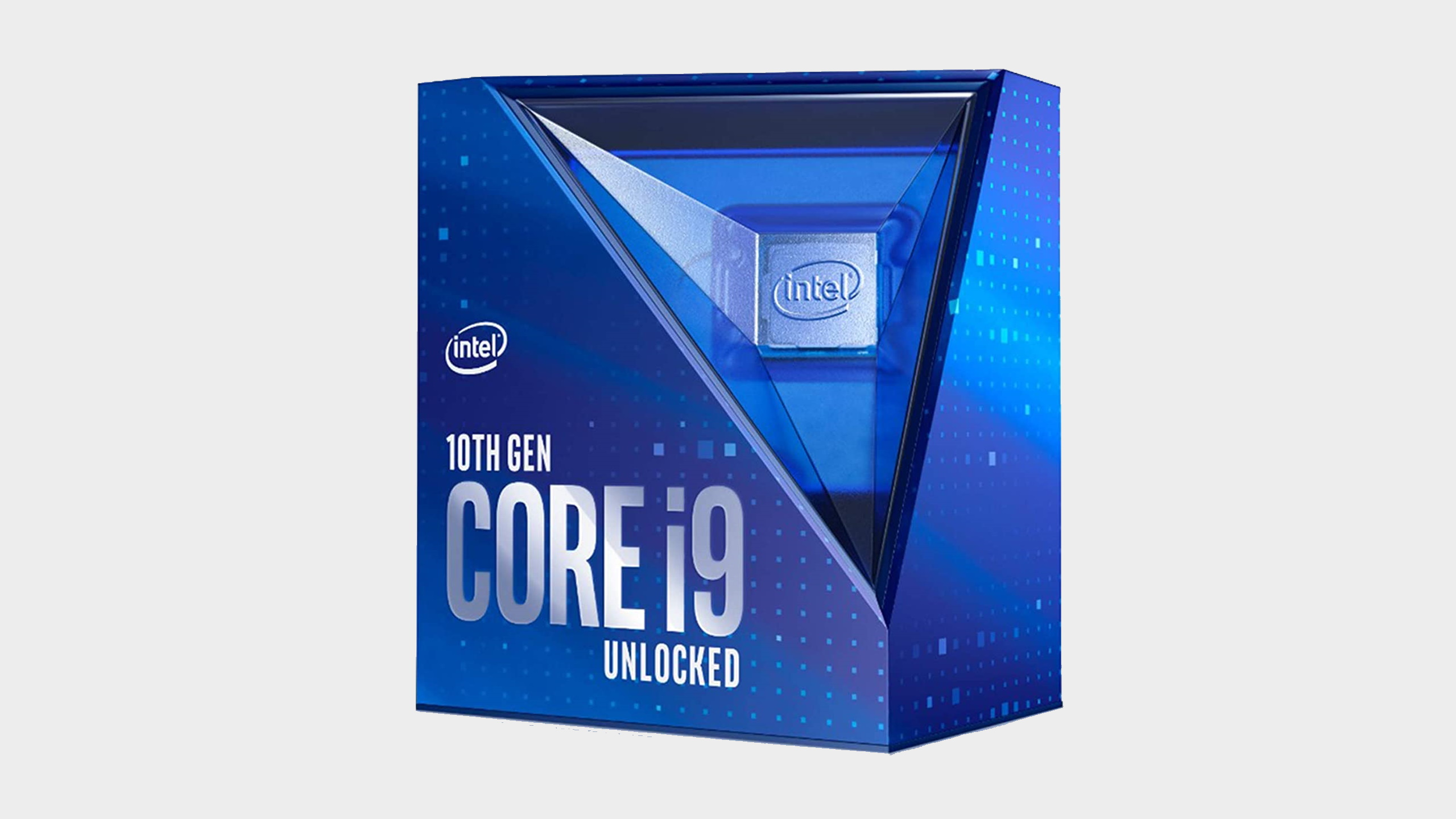
Intel's top Comet Lake gaming chip, the Core i9 10900K, lost a lot of what made it special with the release of Zen 3. When the 10900K was unveiled, it came with the reassurance that it was the world's fastest gaming processor, but that's not a claim it can really hold on to anymore, with plenty of games handing wins to AMD's Ryzen 5900X. It's still a cracking gaming chip, don't get us wrong, but it traded on being the very best, and once that went, it lost a lot of its shine.
What hasn't overshadowed it is Intel's latest release. The Rocket Lake i9 11900K is almost as powerful overall, but it's more expensive and still misses out on the multi-threaded side.
The 10900K is still overkilled for most cases, apart from possibly at the very high-end and for serious workloads; AMD chips make more sense, but there's still a bizarre charm to this CPU. You probably don't need it, but if you build a machine around it, you know it won't be this chip that's holding you back.
The Core i9 10900K is the first time Intel has squeezed 10 processing cores into its mainstream lineup. Given it's capable of hitting 5.3GHz (however briefly), it definitely represents an impressive outing for the 14nm technology Intel has been tied to for so long. Gaming still benefits from high clock speeds, which still delivers; it doesn't make a lot of sense given the competition.
You'll need to invest in a Z490 motherboard to go along with this chip and some serious cooling (a decent PSU wouldn't go amiss either). Don't be fooled by that reasonable 95W TDP, as it'll push way beyond that, especially if you're thinking of exploring its overclocking chops.
Read the full Intel Core i9 10900K review.
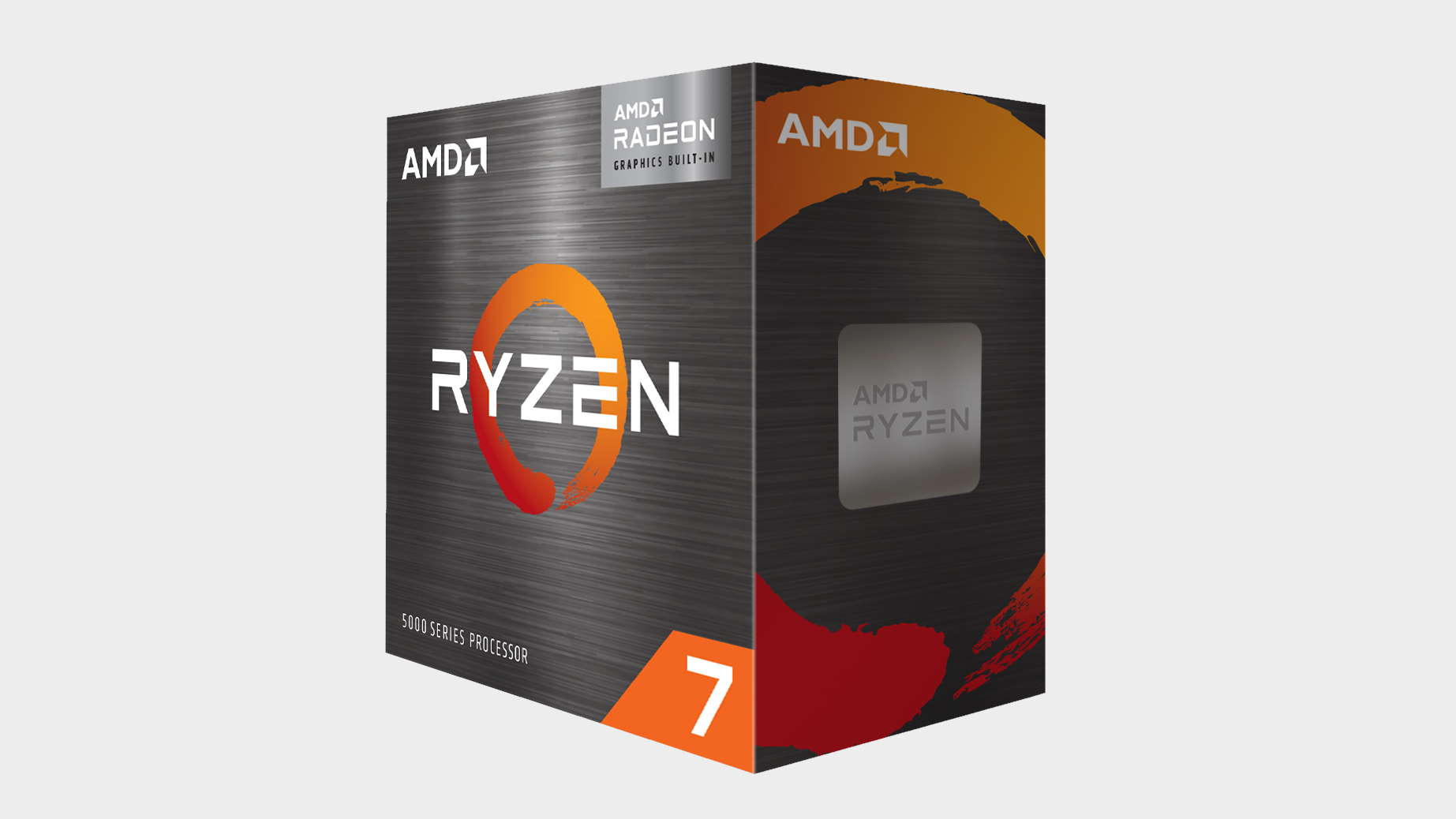
AMD's APUs are the best processors to drop into your rig if you're not going to use a discrete graphics card, but still want a modicum of gaming performance out of your system. And the AMD Ryzen 7 5700G is the best of the latest Zen 3 based chips to deliver that.
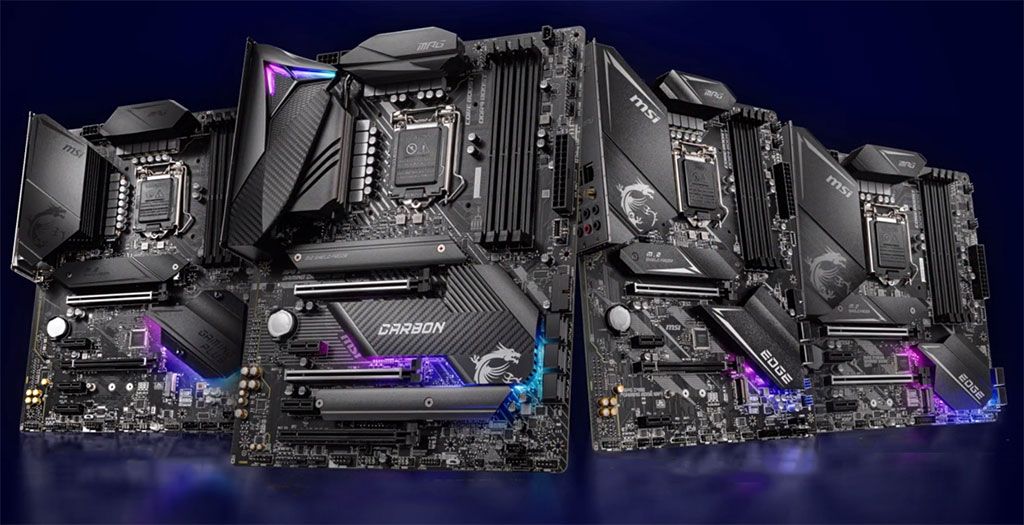
Best gaming motherboard: the best boards around
Best AMD motherboard: your new Ryzen's new home
Best Intel Z490 motherboard: Intel's premium boards
Unlike previous APU offerings from AMD, the Ryzen 7 5700G is far more of a jack-of-all-trades chip, because we are talking about an eight core Zen 3 CPU component, with 16 threads, and a powerful Vega-based GPU to back it up. That makes this a chip that's almost up there with the best of the Ryzen 5000-series CPUs in processing power, but with the graphical grunt to deliver 1080p gaming on low settings in some seriously demanding titles.
In a GPU drought, that makes the 5700G a tantalising APU as it will get your new gaming PC up and running while you wait for discrete graphics cards to actually be available, and without compromising too heavily on your system performance in the meantime.
The issue is that, as the 5700G is a monolithic design rather than chiplet, there are some performance differences compared to the standard Ryzen 7 5800X, a straight eight-core, 16-thread CPU without graphics. It also lacks PCIe 4.0 support to run the fastest SSDs, and demands high-speed memory in order to make the most of its GPU power. But it's still an excellent all-round AMD processor, and a very useful option when graphics cards are still so rare.
Read our full AMD Ryzen 7 5700G review.
Best gaming PC | Best gaming keyboard | Best gaming mouse
Best gaming chair | Best VR headset | Best graphics cards
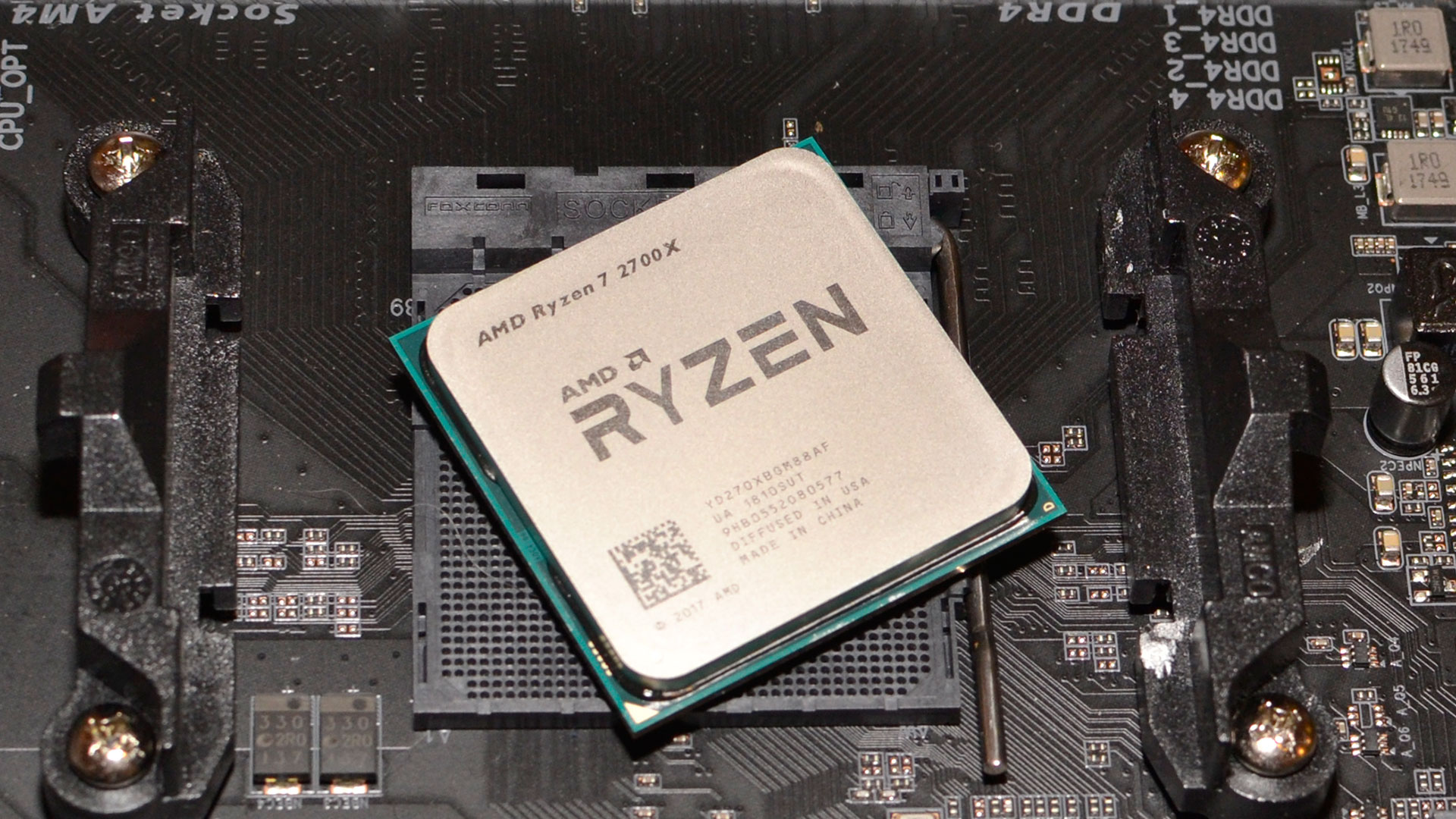
The best CPU for gaming FAQ
How do you test CPUs?
While gaming resolutions run from 720p to 4K, we largely test at 1080p. This will show the most significant difference in gaming performance you're likely to see, and pushes the CPU into the spotlight, instead of the GPU—an Nvidia GeForce RTX 2080 Ti, in our case.
We've also used high-end G.Skill Trident Z and Flare X DDR4-3200 CL14 memory on all modern platforms, in either 2x 8GB or 4x 8GB configurations. Again, this is to eliminate any potential bottlenecks and let the CPUs reach their maximum performance. Liquid cooling was used on all CPUs, though for stock performance, we saw zero difference between that and the box coolers on those parts that included cooling.
The motherboards used in testing include the MSI MEG Z390 Godlike for Intel LGA1151, MSI MEG X570 Godlike, and Gigabyte X570 Aorus Master for third-gen Ryzen and MSI X470 Gaming M7 for first and second-gen Ryzen CPUs. AMD's APUs were tested on an MSI B350I Pro AC motherboard, as we needed something with video ports. For the HEDT platforms (not that we recommend those any longer for gaming purposes—or most other tasks), we used an Asus X299 Extreme Encore for Intel LGA2066, Asus ROG Zenith Extreme for TR4, and Zenith II Extreme for TRX40.
Is Intel or AMD better?
This is a rather loaded question. Right now, the consensus is that AMD has the superior CPU technology, with its chiplet design allowing it to produce processors with far higher core counts at prices and thermal levels that Intel cannot match.
Intel has historically been better for gaming workloads, however, with an all-important advantage in single-core performance and instructions-per-clock (IPC). That has slowly been eroded by AMD's subsequent Zen architectures, to the point where there is little difference between them in gaming terms.
The other point to make is that most games are GPU-limited, which means the graphics card is the limiting factor in terms of performance and you would likely see the same essential frame rates with either CPU manufacturer when a discrete graphics card is used.
Should I overclock my CPU?
The honest answer is: no. Overclocking your processor is not necessarily the risky move it once was, but equally the benefits of doing so have drastically dropped in recent times. When we're talking about gaming performance, having a slightly higher clocked CPU can make a bit of a difference, but arguably your graphics card will be the part that limits the speed of your system.
There is also the point that overclocked CPUs create more heat, require more intensive and expensive cooling solutions, need those coolers to work harder, and are therefore often louder.
For us, overclocking your CPU in order to gain real-world performance benefits is simply not something we'd recommend most PC gamers do.
Jargon buster
We haven't tested and reviewed every CPU made, but here's the list of processors we've reviewed in recent memory, from each manufacturer:
AMD CPU reviews:
AMD Ryzen 9 5950X
AMD Ryzen 9 5900X
AMD Ryzen 7 5800X
AMD Ryzen 7 5700G
AMD Ryzen 5 5600X
Threadripper 3970X and 3960X
AMD Ryzen 9 3950X
AMD Ryzen 9 3900XT
AMD Ryzen 9 3900X
AMD Ryzen 7 3800XT
AMD Ryzen 7 3700X
AMD RYzen 5 3600XT
AMD Ryzen 7 2700X
AMD Ryzen 7 1800X, 1700X, and 1700
Threadripper 1950X and 1920X
AMD Ryzen 5 2600X
AMD Ryzen 5 2400G
AMD Ryzen 5 1600X, 1600, 1500X, and 1500
AMD Ryzen 3 2200G
AMD Ryzen 3 1300X and 1200
Intel CPU reviews:
Intel Core i9 11900K
Intel Core i5 11600K
Intel Core i9 10980XE
Intel Core i9 10900K
Intel Core i9 9900K
Intel Core i7 9700K
Intel Core i9 7980XE
Intel Core i9 7960X
Intel Core i9 7900X
Intel Core i7 8700K
Intel Core i7 7700K and Core i5 7600K
Intel Core i5 8400
Caching - A small segment of high-speed memory dedicated to storing and executing frequently used commands/instructions to speed up software execution. CPUs contain caches designated as Level 1, 2, and 3, with L1 being the fastest and smallest and L3 being the slowest and largest.
Core - Modern CPUs can contain anywhere from two to 70+ cores (in supercomputers), though CPUs housed in most consumer machines will generally carry between four and eight, with AMD's latest CPUs sporting up to 16 cores.
Clock speed - The speed at which a CPU can execute instructions, measured in hertz. A processor with a 3.7 GHz clock speed can process 3.7 billion instructions a second. Clock speed is one of the most critical factors for determining performance in games and workload functions.
Heat sink - A cooling solution for PCs that either utilizes fans or liquid cooling (active) or aluminum radiators (passive) that rely on convection to regulate a component's temperature.
Hyper-Threading (SMT) - Intel terminology for a tech that allows a processor to handle two sets of instructions 'threads' simultaneously. AMD and other CPU vendors call this SMT, Simultaneous Multi-Threading.
Socket type LGA (Land Grid Array), PGA (Pin Grid Array), or BGA (Ball Grid Array) - The way a CPU interfaces with the socket on a motherboard. LGA is used on Intel sockets with pins as part of the socket. AMD's AM4 solution, PGA, has the pins are on the processor, and these fit into holes on the socket. AMD's Threadripper CPUs also use LGA sockets. A BGA socket is one in which the processor is permanently soldered to the motherboard, typically on a laptop.
TDP - Thermal design power, the maximum amount of heat a system or chip can produce that the attendant cooling system is designed to deal with under workload. This term can apply to PCs as a whole, GPUs, CPUs, or nearly any other performance component that generates heat and is in large part an indicator of how much power a part draws.
Thread - A thread refers to a series of CPU instructions for a specific program. Older CPUs and those with SMT disabled run one thread per core, but most modern AMD and Intel CPUs can simultaneously run two threads, sharing some resources (e.g., cache).
Turbo Boost - Intel technology that allows processors to run at higher clock speeds under demanding loads. AMD also supports turbo or boost clocks, and we use the terms interchangeably regardless of CPU vendor.

Post a Comment